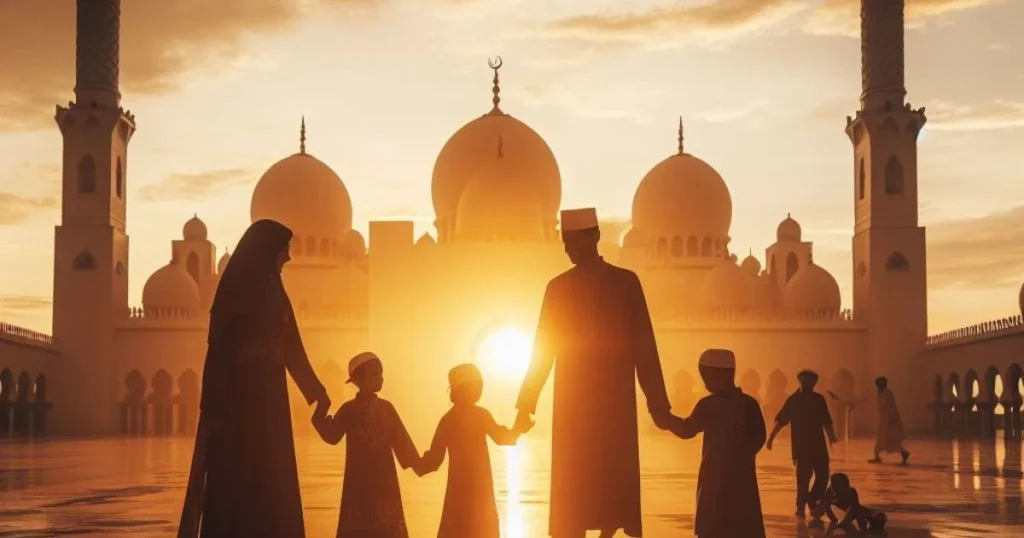
What is Mahram in Islam ?
Islam defines appropriate relationships and interactions primarily through the notion of “Mahram.” It is essential for Muslims to comprehend the qualifications for being a Mahram in order to follow the rules established by Islamic law. We shall examine the meaning of Mahram in Islam in this thorough study, looking at references from the Quran and Hadith and emphasising its useful applications in day-to-day living.
Mahram Meaning
The Arabic word “mahram” describes those who, because of their strong family ties, a Muslim is not allowed to marry or have personal contact with. In the Muslim community, these ties act as a safeguard, encouraging modesty and decency.
What is Quran says About Mahram ?
We go to the Quran for direction when we want to understand Mahram partnerships better.
A comprehensive list of Mahram connections is given in Surah An-Nisa (4:22–23), with a focus on the ban of marriage and other forms of close relationship with them.
وَلَا تَنكِحُواْ مَا نَكَحَ ءَابَآؤُكُم مِّنَ ٱلنِّسَآءِ إِلَّا مَا قَدۡ سَلَفَۚ إِنَّهُۥ كَانَ فَٰحِشَةٗ وَمَقۡتٗا وَسَآءَ سَبِيلًا
And do not marry those [women] whom your fathers married, except what has already occurred. Indeed, it was an immorality and hateful [to Allah] and was evil as a way.
Surah An-Nisa (4:22–23)
This verse emphasises the value of following these rules and emphasises how sacred family ties are in Islam.
Hadith on Mahram
Apart from the Quran, Hadith provides additional understanding of Mahram connections.
The Prophet Muhammad (peace be upon him) said:
“A man must not be alone with a woman except in the presence of a Mahram.”
(al-Bukhari : 5233)
This Hadith highlights how important it is to identify one’s Mahram ancestors in order to uphold proper limits in relationships between men and women.
List of Relationships with Mahram
Let’s examine the particular partnerships that, according to Islam, are considered Mahrams:
Parents: Your primary Mahram are your biological parents. The foundation of the family is this spiritual relationship.
Siblings: Step-siblings on the mother’s side are included in the category of Mahram, as are full and half siblings.
Offspring: Your offspring bear obligations and require care, making them an integral part of your Mahram interactions.
Generational relationships guarantee that grandparents and grandchildren are Mahram to one another.
Uncles and Aunts: Mahrams are the aunts and uncles on both your mother’s and father’s sides.
Nieces and Nephews: You regard your aunts’ and uncles’ offspring—your cousins—as Mahram, just as they regard you.
lets enjoy online games with your friends and spend quality time. Try p999 game download and enjoy.
Applications of Mahram Relationships in Practice
Muslims’ daily life are impacted in a practical way by knowing who is considered a Mahram. It directs their activities and relationships, making sure that proper boundaries are maintained with close family members. The following are important things to remember:
Modesty: Since there is no rigid necessity to cover up in front of them, mahram partnerships promote modesty in both behavior and clothing. This respects the modesty and purity of Islam.
Social Interactions: Being aware of Mahram relatives makes it easier to decide who is appropriate to travel, interact with, or seek advice from.
Matrimony: When contemplating marriage, it is essential to have a thorough grasp of Mahram partnerships. It makes sure that marriages follow Allah’s rules and avoids relationships that are forbidden in Islam.
Inheritance: Islamic inheritance laws are influenced by mahram ties when it comes to establishing a person’s eligibility to inherit from a deceased person.
Conclusion
Mahram interactions, in summary, are essential to Islamic ethics and family life. They protect the integrity of family ties and promote modesty and decency among Muslims. Islamic principles govern social interactions and personal lives based on an understanding of these relationships.
Share on >>
